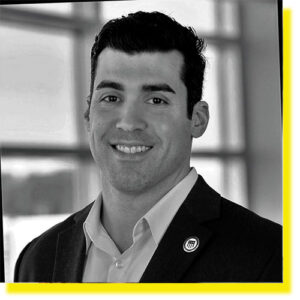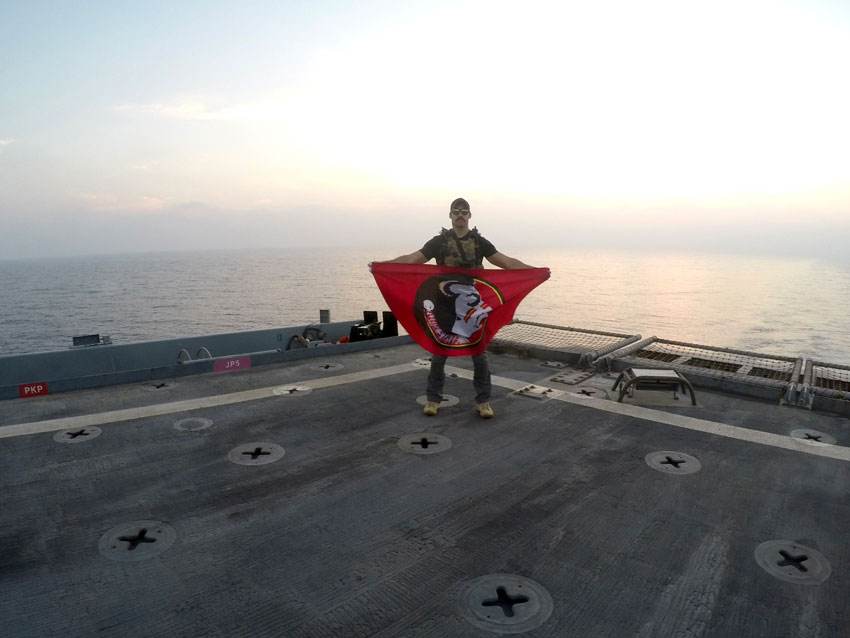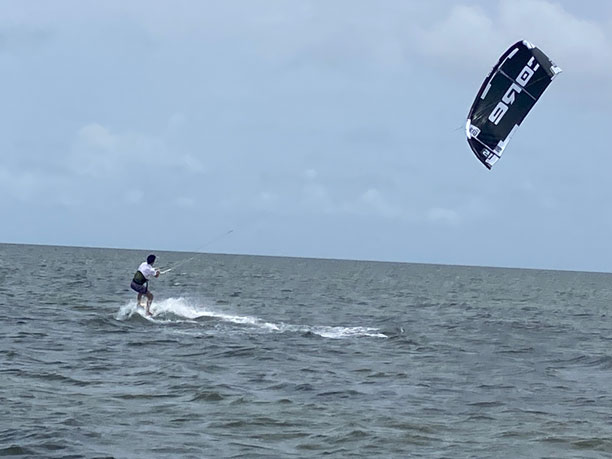
From Navy Special Operations to Myers-Holum – What It Takes to Be a Leader: A Conversation with Michael Boivin
Published on by Rebecca Rowe

We sat down with Michael Boivin to get his take on good leadership, making the shift from US Navy Special Operations to the private sector, and why he chose Myers-Holum Inc. (MHI).
Tell us about your background and what brought you to MHI.
Michael Boivin – Coming from the US Navy and specifically Naval Special Warfare (NSW), I sought an organization where I could make an immediate impact. After leaving a tight-knit community, a big concern for me was finding a home to grow my career, where I could lead others and make decisions to know the culture was being built in the right way.
When I was introduced to Myers-Holum (MHI) through The Honor Foundation (THF), a nonprofit group that helps the US Special Operations community transition from the military into the private sector, I saw an opportunity to grow with the firm, contribute to its success and continue to work with like-minded individuals who were mission-driven.
What has led you to be good in the position you have now?
Michael – It’s about being a disciplined and value-added teammate that seeks out work; we promote individuals who are pro-active, and are evaluated by our contributions rather than past performance. I believe it’s attention to detail, preparation, situational awareness and clear communication that are important attributes, which the military hones, and have ultimately led me to where I am today.
How does that help when working with MHI’s partners?
Michael – It is critical to the success of the company, and subsequently my own, that the lines of communication between our firm and our partners are always open. With NetSuite, we support solution evaluations and sales cycles to ensure they run smoothly. It’s important to have contingencies in different situations, so preparing multiple courses of action to reach the end goal helps in closing each deal.
Just like in the military, it is also about building relationships. These relationships are critical to what we do and why we are successful, which carries over to our delivery team, who are invaluable to our success and contribute significantly in executing what we do so well.
How do your team and you build relationships with customers?
Michael – When it comes to our clients, I think it’s most important to understand the end-state vision for their company. Our responsibility is to recognize that vision and leverage our Solution Architects to provide a digestible roadmap to get them to that end state. It is also about being sincere, sitting down with clients, listening to their concerns and pain points, and finding the best ways to streamline processes. Finally, it’s imperative that our clients trust us with their critical business operations.
Can you elaborate on the trust factor?
Michael – At the end of the day, the clients we speak to are often owners or C-Level executives. They are the decision-makers, the ones who put the blood, sweat, and tears into the company, and we do not take the trust they place in Myers-Holum for granted.
Outside of the trust we build to successfully deliver value to clients, maintaining trust in the firm as a whole is critical to maintaining our 40-year history. Our new business is almost entirely reference-driven, and getting excellent references means we are doing our job.
We maintain the same level of trust with NetSuite. When NetSuite draws us into an evaluation, we help them get across the finish line. It is about making ourselves available and bringing in the appropriate resources to be successful for our partners and clients.
Could you give us a little bit of backstory about your time in the military?
Michael – Why I chose Myers-Holum mirrors why I enlisted in the military. I was 26 and wanted to join a community where I would have a real impact. When I look back on my time serving as a Special Warfare Combatant-Craft Crewman (SWCC), I believe I accomplished that goal. I was fortunate enough to operate with the military’s best, serving for a common goal, and that is what’s important to me. Although I enlisted later in life, the military and SWCC teams still shaped me into the professional I am today.
What are some of the traits that make a good leader, and how can you transform a military career into a leadership career in the private sector?
Michael – In the military and especially in special operations, you are expected to work effectively in dynamic, and sometimes hostile, situations. Therefore, communication skills and the ability to overcome adversity are critical, as well as helping others drive through those same challenges; just like my time in the special operations, the success of one means nothing if the team fails. That strategy carries over both to my leadership approach — and circling back to one of your previous questions— how we work with our clients and NetSuite.
How does overcoming adversity carry over to partners and clients?
Michael – We help clients navigate through uncertainty. For example, companies evaluating NetSuite ERP are often moving away from legacy systems they are comfortable with and managed for decades or start-ups looking to structure their company for long-term growth and success. We help them operate the next phase of their organization’s journey. In special operations, you bring order out of chaos; you find solutions when others may not.
What is the hallmark of the best leader?
Michael – There are many different leadership styles and approaches. My biggest takeaway is being dependable and gaining your team’s loyalty. Being boots on the ground with your team and having each other’s back is a big part of earning that loyalty. A good leader understands that it’s not about them; it is about the team, the overall goal, and having complete buy-in. If there is no buy-in, you won’t be successful. One of the great things about Myers-Holum is that we are all bought into the firm’s future.
Give us a sense of what your life is like outside Myers-Holum.
Michael – Where to start? I have a 2-year-old and 2-month old and they are our life right now for my wife and me. I like extreme sports; snowboarding, surfing, and I recently picked up kiteboarding. Fitness, health and nutrition remain important to me to this day. I used to compete in local CrossFit competitions, but I’ve taken a step back from that and am now in the process of training for my first triathlon. I’m an avid golfer and enjoy playing ice hockey. I am constantly looking for activities/hobbies that keep me outdoors and force me out of my comfort zone.
To wrap up, is there anything you want to share from your military background that would be insightful to people?
Michael – The SWCC selection process and training are tough on you both mentally and physically and candidates who make it through trained for and dedicated their life to perform at the highest level. I deliver that same commitment and drive to Myers-Holum as we continue to grow our organization. You don’t make it through selection without your team, without your classmates, or without your swim buddy. That camaraderie is very difficult to come by and is something every business should strive to have.
A few photos of Michael








